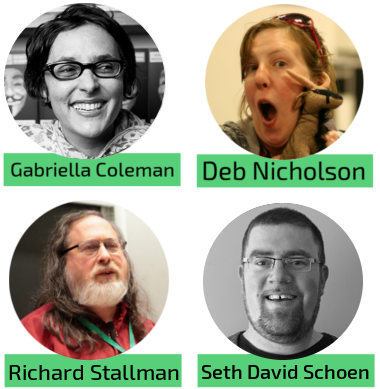Friday Free Software Directory IRC meetup: January 19th starting at 12:00 p.m. EST/17:00 UTC
mercredi 17 janvier 2018 à 22:34Help improve the Free Software Directory by adding new entries and updating existing ones. Every Friday we meet on IRC in the #fsf channel on irc.freenode.org.
Tens of thousands of people visit directory.fsf.org each month to discover free software. Each entry in the Directory contains a wealth of useful information, from basic category and descriptions, to providing detailed info about version control, IRC channels, documentation, and licensing info that has been carefully checked by FSF staff and trained volunteers.
When a user comes to the Directory, they know that everything in it is free software, has only free dependencies, and runs on a free OS. With over 16,000 entries, it is a massive repository of information about free software.
While the Directory has been and continues to be a great resource to the world for many years now, it has the potential to be a resource of even greater value. But it needs your help! And since it's a MediaWiki instance, it's easy for anyone to edit and contribute to the Directory.
This week we're back to adding new packages. While we recently surpassed the 16,000 entry milestone, there's still a long ways to go before the Directory is fully up to speed. In addition to working on adding individual packages, we'll be continuing our search for help with the Directory import project, which could help add thousands of packages in one blow.
If you are eager to help, and you can't wait or are simply unable to make it onto IRC on Friday, our participation guide will provide you with all the information you need to get started on helping the Directory today! There are also weekly Directory Meeting pages that everyone is welcome to contribute to before, during, and after each meeting.
